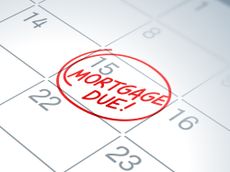Typical two-year fixed rate mortgage exceeds 3% for first time in over seven years
The run of rate increases from the Bank of England since December is creating a remortgage boom, with the average two-year fixed deal rising above 3% for the first time in over seven years


The average two-year fixed rate on a mortgage has risen above 3% for the first time in over seven years, according to a new report.
A typical two-year fix is now 3.03%, after rising 0.69 percentage points since December 2021, according to Moneyfacts UK Mortgage Trends Treasury Report. It’s the highest level since March 2015.
It means those remortgaging face significantly higher monthly payments if they don’t manage to secure a good mortgage deal.
A homeowner with a £250,000 25-year loan, for example, will end up paying £131 more a month on 3.03% than on the cheapest two-year fix from Cumberland Building Society (as of 9 May 2022) which sits at 1.99%.
Five-year fixed deals have also been rising. The average five-year fix is now 3.17%, after rising for seven consecutive months. It’s the highest level since May 2016.
What has caused the increase?
Increasing mortgage rates have partly been brought on by four increases in the base rate by the Bank of England since December and created something of a remortgage boom: almost 144,000 borrowers remortgaged in the first three months of 2022, according to the Bank of England.
Eleanor Williams, finance expert at data analyst Moneyfacts, said: “Remortgage borrowers, spooked by Bank of England rate rises, are in a hurry to secure some financial stability and rush to lock into a fixed deal to protect themselves from further rate increases. This move may particularly be true for those who, by virtue of house price growth, could take advantage of increased equity in their home to potentially secure a lower rate.
Look After My Bills Newsletter
Get the best money-saving tips, tricks and deals sent straight to your inbox every week. Make sense of your money in partnership with The Money Edit.
However, while the rates have been lower in recent years, if you took out a mortgage five years ago you probably won’t be shocked if you are ready to remortgage soon. The average five-year fixed rate was 2.89% in May 2017 - only 0.28 percentage points cheaper.
Good news for first-time buyers
There is a sliver of good news for first-time buyers. There are 369 deals offered that only require a 5% deposit. Williams adds “The average two- and five-year fixed rates at both 95% and 90% LTV may have risen month-on-month, these are the only two lending tiers where the average rates remain lower now than they were at this time last year.”
While the cost of living crisis will affect first-time buyers’ road to homeownership, the choice of mortgage deals seem to indicate that lenders could be keen to help this demographic where possible.
Katie is staff writer at The Money Edit. She was the former staff writer at The Times and The Sunday Times. Her experience includes writing about personal finance, culture, travel and interviews celebrities. Her investigative work on financial abuse resulted in a number of mortgage prisoners being set free - and a nomination for the Best Personal Finance Story of the Year in the Headlinemoney awards 2021.
-
 Three energy firms pay £8m in switching compensation - has your provider paid out?
Three energy firms pay £8m in switching compensation - has your provider paid out?More than 100,000 customers have received compensation after changing providers, but is now a good time to switch energy suppliers?
By Tom Higgins Published
-
 Save £300 on your supermarket shop with cashback accounts
Save £300 on your supermarket shop with cashback accountsBanks, credit card companies and cashback sites are all offering cashback on your supermarket shop, but can you use them all to max out your savings?
By Vaishali Varu Published
-
 Moving home: why failing to share your new address could cost you money
Moving home: why failing to share your new address could cost you moneyWhen you move home you’ll want to share your new address with family and friends – but being slow to update your contact details with councils, banks and the DVLA can be costly
By Sue Hayward Published
-
 Skipton Building Society to offer deposit-free mortgages for “trapped renters” - everything you need to know about 100% deals
Skipton Building Society to offer deposit-free mortgages for “trapped renters” - everything you need to know about 100% dealsEverything you need to know about how to get a mortgage with no deposit
By Katie Binns Published
-
 Stamp duty: are you entitled to a tax refund worth thousands?
Stamp duty: are you entitled to a tax refund worth thousands?There are plenty of reasons why homebuyers may be entitled to a stamp duty refund, but it’s important to only claim if you’re eligible for a refund (and beware the claims management companies)
By John Fitzsimons Published
-
 House price hotspots: 50 areas where property prices have shot up the most
House price hotspots: 50 areas where property prices have shot up the mostWhich areas have seen the strongest house price growth over the past decade? Discover the towns and locations around the UK where property prices have more than doubled.
By John Fitzsimons Published
-
 Faster mortgage support for Universal Credit claimants – what it means for you
Faster mortgage support for Universal Credit claimants – what it means for youIf you claim Universal Credit, you can now get quicker support with paying your mortgage. We look at when you can get it and how to access it
By Stephanie Baxter Published
-
 Should I fix my mortgage rate?
Should I fix my mortgage rate?Interest rates are expected to rise again on the back of stubborn inflation, before falling next year. We look at the pros and cons of fixing your mortgage rate and what to consider if you need to remortgage soon.
By Stephanie Baxter Last updated
-
 Selling your home: avoid these mistakes to get the best possible price
Selling your home: avoid these mistakes to get the best possible priceFrom boosting kerb appeal to clearing clutter, there are crucial steps to take to ensure you get the highest price when selling your home
By John Fitzsimons Last updated
-
 Interest rates rise to 4.25% - what does it mean for your money?
Interest rates rise to 4.25% - what does it mean for your money?The Bank of England has increased the base rate for the 11th time in a row. We look at whether rates could rise further this year, and what the latest hike means for your mortgage and savings
By Ruth Emery Published